The Admiral - a figure rehabilitated?
Introduction
Aleksandr Vasiliyevich Kolchak is one of the most controversial figures in post-Communist Russia, although you won't find much discussion of this figure outside of those borders. Prior to his death by firing squad at the hands of the Bolsheviks in 1920, Kolchak was a highly decorated and respected figure within the Russian Navy. As someone who not only fought, but actually headed, the White faction during the Communist struggle for control of Russia, it is understandable that the ruling Communist Party re-wrote history to essentially paint him as a thuggish dictator and remove any sense of sympathy or idolisation for the man - which is rich for a party that spawned Josef Stalin, but hey…
In recent years there has been an attempt to rehabilitate Kolchak in the eyes of the public, not always successful but the release of this biopic in 2008 with actor Konstantin Khabensky, well-known in the West for his recurring role in Nightwatch and Daywatch, in the lead role. Admiral was, at the time of filming, the most expensive Russian film made with an estimated budget of $16,000,000.
The year is 1916 and Kolchak commands a Russian ship on mine laying duty on the Baltic coast during World War I. Coming under attack from a German battleship, Kolchak succeeds in defeating and sinking the German ship with courage and cunning, luring the Germans into the minefield he had just laid. His reward for this brave action, risking his ship being destroyed by his own mines, is promotion to Vice Admiral and command of the Baltic Fleet.
At this time, he meets Anna Timirev, the beautiful wife of one of his subordinate officers. Despite being married with children, Kolchak has a wandering eye and a penchant for short-lived affairs, which his long-suffering wife tolerates. Bizarrely, Anna's husband also tolerates this, although that may be due to a reluctance to speak out against his commanding officer.
The following year sees the October Revolution and Czar Nicholas II deposed as Russia's head of state as Bolshevism takes the place of monarchy at the head of the nation. Kolchak sees the result of the rise of the working man as weakening the Russian Navy and Armed Forces in general and argues for the reinstatement of discipline, for which he is exiled as the Bolsheviks no longer believe in a chain of command during this turbulent time. Kolchak is exiled to the US whilst fellow officers are purged and executed in large numbers by bitter and exploited lower ranks.
Kolchak later returns to Russia to take a prominent place within the White movement that opposes the Red army of Bolshevism. Reunited with Anna, Kolchak leads a part of the White army as a land-based Commander and eventually is named Supreme Ruler of Russia.
Picture
The cinematography on this film is quite stunning and the lavish production will appeal to anyone with a passing interest in period costume drama. The CGI for the sea battles isn't quite up to the high standard we expect from Hollywood productions, but Dago Productions (the visual effects house) still have a right to be pleased with the end result. It all looks rather superb.
Sound
Choice of both 5.1 Surround or 2.0 Stereo soundtracks, both in Russian with burnt-in subtitles. I'm please that there is no longer a real tendency to dub films like this as this really is the best way to experience them, as they were made rather than a voice-over approximation of the acting.
Extras
Just a trailer, nothing else.
Overall
I'm starting to really like Metrodome as a distributor, bringing as they have the best in Asian cinema in the last few months. I'm a huge fan of this part of the market at the moment, despite some rather naïve scriptwriting issues in the like of Hong Kong releases. Despite these minor issues, they generally all go for the glossy and/or epic feel to them and Russia's latest entry with The Admiral is no exception.
This film could have gone a couple of ways, the controversial figure of Kolchak was famous for a number of things in his rather enforced shortened life. Focusing really on the efforts to rehabilitate him in post-Communist Russia head-on, the film looks at his war-time record, the effects of the October Revolution and his unsuccessful attempt to overthrow the Bolsheviks as Supreme Ruler of Russia as head of the White faction. Also examined is the requirement for a disciplined structure within the Armed Forces and the rather chaotic and pointless purges of the Officer class following the Revolution and then also repeated by Stalin in the late 1930's. As much as it sounds good in theory to have everyone equal, in order for any organisation to be truly effective and able to respond swiftly, some have to be more equal than others and discipline needs to be maintained in order for Armed Forces to operate effectively in operational theatres.
The events from 1916 to his death in 1920 are shortened dramatically for pacing and therefore not covered in great detail. This is also offset by a major part of the story concentrating on his love affair with Anna Timirev, albeit in the sweeping epic style of period drama rather than gratuitously. This works to link the various segments together as Anna seems to have been a virtual constant in Kolchak's life after their initial meeting in 1916. Despite moving between events at a rapid pace at times, director Andrei Kravchuk does an excellent job of bringing together a sweeping epic that may not rival Dr Zhivago but can rightly take it's place in the new Russia as a rather stunning biopic of one of Russia's lost heroes.
Konstantin Khabensky takes the plaudits with his portrayal of the rather stoic and heroic figure at the centre of the story, but there are some really good performances from the other cast members, namely Sergey Bezrukov as General Kappel and Vladislav Vetrov as the cuckolded husband of Anna, Sergey Timirev. If you look on iMDB, you'll find that Elizaveta Boyarskaya gets quite a bit of stick from her fellow Russians for her performance as Kolchak's lover Anna Timirev. These people may well have more exposure to her acting, but I'd offer the opinion that I found her more than adequate in her role and is also quite a striking woman. Maybe they would have preferred Olga Kurylenko instead…
A fine addition to an already excellent catalogue of releases from Metrodome…
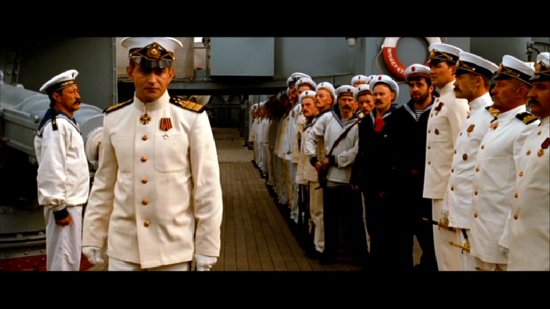
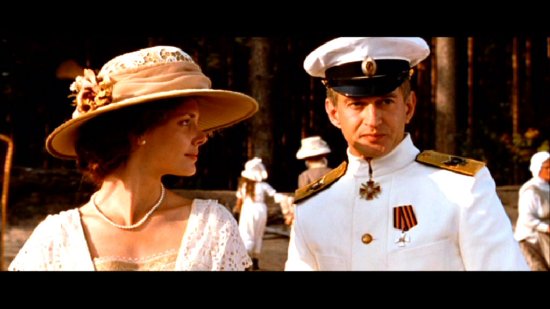
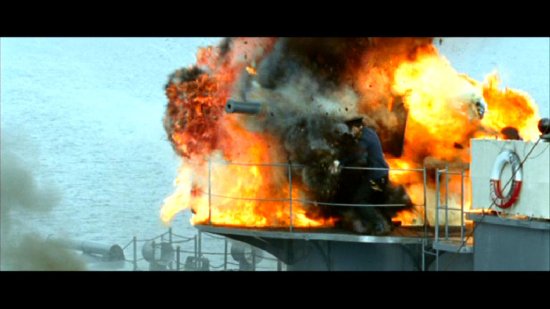
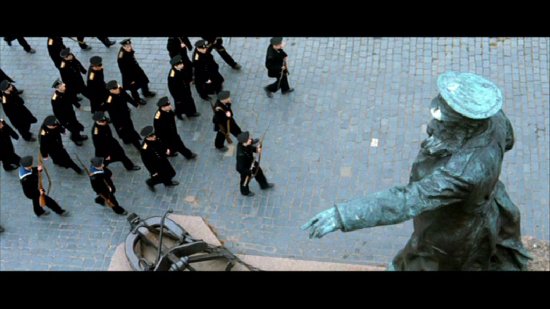
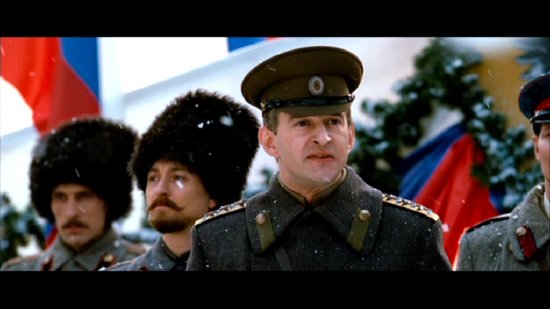
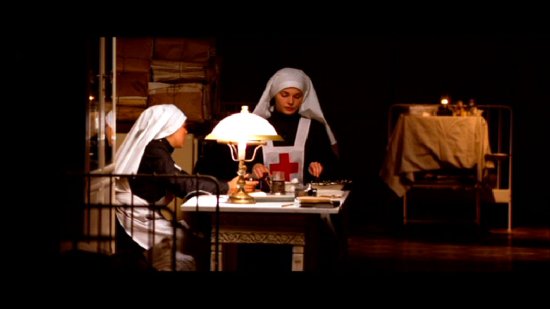
Your Opinions and Comments
Be the first to post a comment!